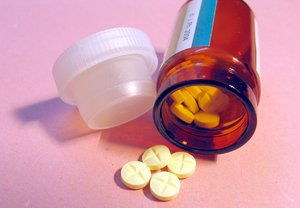According to a report from the National Highway Traffic Safety Administration (NHTSA), post-mortem testing results showed an increase in the level of drug involvement in drivers who were killed in car accidents from 2005 to 2009.
The study concluded that close to 65 percent of the 21,800 drivers who were killed in 2009 were tested for drugs. Of these drivers, there were close to 4,000 who returned positive test results. These drivers accounted for close to 20 percent of those involved in fatal accidents for the year.

In the inforimation that was collected there were three categories: whether or not the driver was tested, the test results and how the test was administered. Within the drug categories were inhalants, anabolic steroids, phencyclidines (PCPs), cannabinoids, hallucinogens, stimulants, depressants and narcotics. Drugs involved included over-the-counter medicines, legally prescribed drugs and illicit drugs.
Our Boston car accident lawyers would like to remind every driver that they have a personal and moral responsibility to drive responsibly and to do so with uncompromised faculties. The report released by the NHTSA illustrates just how many drivers in the country are driving after consuming drugs. Most drivers don’t even recognize the dangers and the risks.
In announcing the findings, NHTSA Administrator David Strickland issued a caution to dangerous drivers; this is a more serious problem than we could ever have imagined. Drug tests are not always administered and even when they are, results are not always reported,
meaning that these numbers might actually be much higher. More states are catching up and more drug tests should be expected to be administered across the country in coming years.
“If you are taking any drugs that might impair your ability to drive safely, then you need to put common sense and caution to the forefront, and give your keys to someone else,” said Strickland.
Strickland says that officials with the NHTSA will be conducting even more research to get a better understanding of the correlation between drugs, the level of intoxication and both of their impacts on accidents.
The NHTSA is currently pushing the Drug Evaluation and Classification program to help educate 1,000 instructors and over 6,000 law enforcement officials throughout more than 45 states to help to recognize the various symptoms of drug impairment among drivers.
Of the more than 210 accidents in which a driver was killed in the state of Massachusetts in 2009, there were close to 15 drivers who were never tested, close to 70 who returned negative test results, 20 who were found with drugs, more than 15 in which the test results were unknown. Another 95 had unknown testing status.
More and more states are slowly creating ways to try to keep these drivers under control. Sometimes these strategies work and sometimes they don’t. We’re calling on all drivers to do the right thing and to stay from behind the wheel whenever under the influence of any kind of alcohol or drugs.
If you or a loved one has been injured in an accident, contact Jeffrey S. Glassman for a free and confidential consultation to discuss your case. Call 877-617-5333.
More Blog Entries:
2012 Brings Higher Risks of Traffic Accidents in Massachusetts!, Boston Car Accident Lawyer Blog, September 22, 2012
Massachusetts Driving Safety: Teaching Teens Through Demonstration, Boston Car Accident Lawyer Blog, September 20, 2012
 Boston Car Accident Lawyer Blog
Boston Car Accident Lawyer Blog

